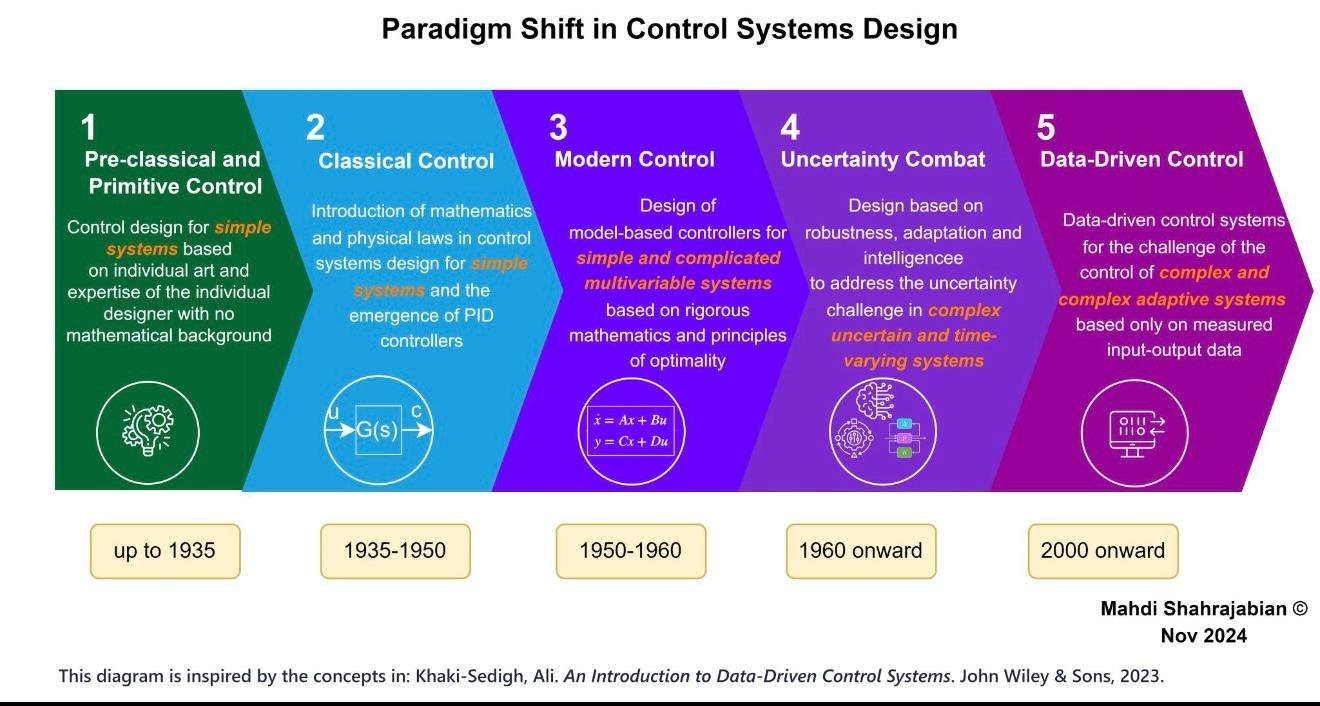The areas of control engineering, control theory, automatic control, and the associated technologies the automation industries, have been routed into the (IEE) and consequently the (IET) for a long while. It is with no exceptions if we indicated that, most of the revolutions of modern industries, domestic, non-domestic, household devices and other intelligent machines (the intelligent robotics) are results of such massive developments within this theme of engineering, by both the academia and the industrial sectors, and entrepreneurship in parallel.
Developments of "control and automation" will not pause, this is due to the continuous efforts to adapt new theorems, analysis, modern design tools, and applications to this vital sector of engineering. The control and automation are shaping our future over a number of sub-sectors and interrelated disciplines. The multidisciplinary nature of applications have also shaped the future of the control and automation development. Given this background, I believe the IET has the capacity, tools, and role to enhance the Control and Automation, hence to disseminate information and knowledge related to engineering control.
Spreading the technical knowledge of control and automation is a vital part of this long-standing journey. We are at an important stage to further move forward with a number of means to create a mechanism for technical content/knowledge developing, hence, to spread and disseminate the updated content.
There is no doubt that, there is a Control Theory and Applications Shifting Paradigm, this is due to the multidisciplinary of control theories and their inter-relations with other knowledge. Over years, the control theory has developed from purely deep mathematically defined and analyzed approaches to much "knowledge based and data driven based approaches". This can be certainly observed on the recent publications in transactions, proceedings of technical events, and educational books.
I believe the IET has played and still has a vital role to play in spreading the technical aspects of modern control and automation topics and make these subjects accessible and reachable for academia, industries, researchers, young professional members, and other related sectors.
Nevertheless less, the matter (Control Theory and Applications) has been established lone time ago to represent all those with an active interest in control and automation. It will be relevant to those involved with the research, lecturing, design, implementation, construction, development, analysis and understanding of new directions for modern control systems to look into a several multidisciplinary topics related to control engineering. Here are few focuses to be of interest:
- Developments of concepts for automation and control - such as Application of control & automation systems.
- Developments in control systems technology, standards and competencies in control engineering,
- Space apparatus and control of such sophisticated devices in space.
- Robotics control. Intelligent vehicle control and the self-driving cars.
- Power systems control and automation for the new trends for renewable energies and instruments.
- Control system design and analysis method and tools - such as new algorithms for automation and control.
- Modelling, identification and simulation of systems and processes, coverage of both new approaches to classical design and emerging areas, application of Control
systems in industry.
- Integration, autonomy, and embedded systems - such as Intelligent transducer systems, control systems engineering and development,
- Practical applications of learning systems, The implementation of true distributed control, Integration of control and information systems, Safety and reliability of
industrial systems.
- Recent process control systems and advances in the control of manufacturing systems.
- Industry specific issues such as communications and safety issues of networks.
